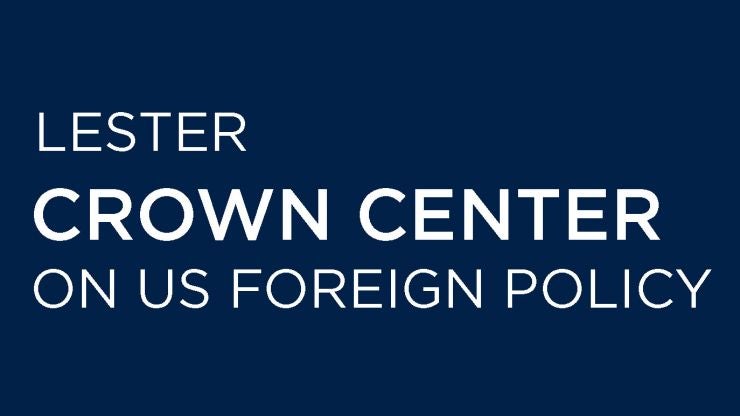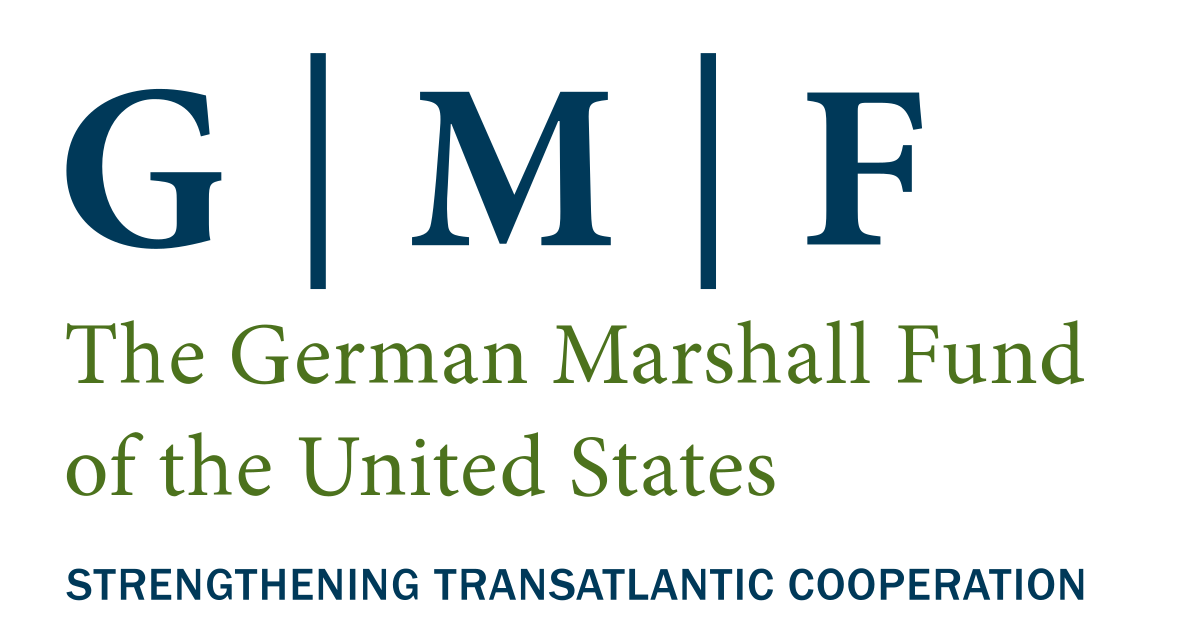The 2002 Chicago Council survey made it clear that 9/11 had a profound impact on the American mood and U.S. relationships with allies and former enemies and nations in which we thought we had little stake were seen in a new light.
American Public Opinion and Foreign Policy
Introduction
In the aftermath of the terrorist attacks of September 11, 2001, many commentators in the United States and around the world asserted that the world had changed. The fact that the continental United States had been attacked by foreign enemies for the first time since 1812—and with horrendous effect—was bound to change Americans' thinking about the world and their role in it. The goals and priorities of U.S. defense and foreign policies would shift. Even the international system as a whole might be fundamentally altered.
Even if one did not fully accept such sweeping assertions, it was clear that 9/11 had a profound impact on the American mood. A little more than a decade after the end of the Cold War, a decade in which few foreign issues intruded much on the American consciousness, Americans had been shocked by their own vulnerability to unconventional and faraway threats.
Few events in the nation's history had been felt as widely and deeply.
Almost as immediately, U.S. relationships with old allies and friends as well as former enemies and nations in which we thought we had little stake were seen in a new light. Relations with key European countries, recently troubled, took on added importance. Russia quickly moved to the U.S. side in the war on terrorism.
The salience of the Middle East and Arab nations to American security suddenly increased. Within four weeks the United States was at war in remote Afghanistan.
The Chicago Council on Foreign Relations began in late fall 2001 to plan its 2002 study of American public opinion, the eighth in its quadrennial series. Arguably, there had never been a more critical time since the Chicago Council studies began in 1974 to probe American attitudes toward a wide range of international issues and U.S. policy options.
All interviewing of the general public was conducted between June 1 and June 30, 2002. Data for the telephone and in-person interviews were weighted separately according to known demographic characteristics of the population and merged to form a combined sample (n=3,262).
Summary Findings
Refocused Internationalism After 9/11
The tragic events of September 11, 2001 have had a deep impact on Americans' thinking about the world and their role in it. Shocked by a newfound vulnerability to international terrorism, Americans have become more attentive to what is happening beyond their borders and more willing to take action to reduce that vulnerability. American internationalism has been refocused on containing and defeating the international terrorist threat.
- More Americans cite terrorism as one of the two or three biggest problems facing the country than any other problem, the first time a problem related to foreign policy has been the most cited problem.
- Terrorism is also the most commonly cited foreign policy problem and the most commonly viewed critical threat to U.S. vital interests.
- Public interest in world news is the strongest it has been in the last three decades of Council surveys.
- Support for an active foreign policy to deal with a wide range of international problems is up.
- Americans are prepared to expand spending on programs that protect the homeland, even though domestic spending priorities rank higher.
The Goal: Security at Home
The terrorist attacks of September 11 have made Americans more keenly aware of many dangers from abroad that threaten the U.S. homeland, especially international terrorism and weapons of mass destruction. Yet the public does not focus exclusively on terrorism in foreign policy. Americans also put a very high priority on protection from threats to their domestic economic health and personal wellbeing and are concerned about certain regional conflicts, the global environment, and world hunger.
- The threats of international terrorism, chemical and biological weapons, Iraq developing weapons of mass destruction, and the possibility of unfriendly countries becoming nuclear powers elicit the highest levels of public concern since the threats question was first asked in 1990.
- More Americans today agree that it is very important for U.S. foreign policy to combat the threats of international terrorism and nuclear proliferation than have agreed on any other foreign policy goal in Council surveys since 1974.
- Strong majorities also consider it very important to protect the jobs of American workers, stop the flow of illegal drugs into the United States, secure adequate supplies of energy, control and reduce illegal immigration, and protect the global environment.
- Threats from regional struggles, including the Arab-Israeli conflict, tensions between India and Pakistan, and Islamic fundamentalism, are also of high concern in the minds of Americans.
- Global hunger remains an important concern of Americans, even as most altruistic pursuits in foreign policy rank comparatively low in importance.
Superpower with Limits
While Americans embrace U.S. status as the world's sole superpower and support action to protect American interests, they are not comfortable taking on international problems alone and clearly reject certain unilateral exercises of power. Most Americans favor limits: they seek multilateral support, favor devoting substantial but not unlimited resources to military capabilities, and rule out certain kinds of military action altogether.
- Americans believe it is desirable for the United States to exert strong leadership in world affairs, see the United States as extremely influential in the world, believe it plays a more important and powerful role in the world today than it did 10 years ago, and say it will play a greater role in the next 10 years.
- Americans overwhelming support using military force—including U.S. ground troops—to fight international terrorism. They show strong support for using troops in a variety of other situations, including peacekeeping and humanitarian operations.
- Americans strongly support multilateral action and partnership, in many cases favoring the use of force only with the support of the United Nations and of its allies. This is especially true for an invasion of Iraq.
- Most Americans favor having many military bases abroad and increasing spending on homeland security. Nearly half favor increased defense spending, the highest proportion favoring this position in any Chicago Council survey over the past 30 years.
- Americans do not believe that the United States has the responsibility to play the role of world policeman and believe the United States is playing this role more than it should.
- Majorities of Americans believe NATO is still essential to our country's security and favor the expansion of NATO to include a number of Eastern European countries as well as Russia.
- Americans disavow the first use of nuclear weapons and say the United States should not build a missile defense system right away but should do more research until such a system is proven effective.
International Cooperation
The U.S. public resists the idea of playing a hegemonic role in the world. It does not automatically turn to the use of military might to enforce its will abroad.
Americans tend to look first to diplomatic approaches and to seek out multilateral solutions. Most Americans favor working through international institutions—especially the United Nations—and participating in international treaties and agreements. Even with regard to the war on terrorism, support for nonmilitary instruments based on multilateralism and diplomacy is as strong as for military approaches.
Americans strongly disagree that the United States should be the preeminent world leader in solving international problems, favoring instead solving problems together with other countries. They strongly agree that the United States and the European Union should be more willing to make decisions jointly even if they have to go along with a policy that is not their first choice.
- A majority of Americans believe the more important lesson of September 11 is that the United States needs to work more closely with other countries rather than act more on its own to fight terrorism.
- Americans show strong support for strengthening the United Nations, paying its UN dues in full, having UN member countries contribute troops to a rapid deployment force, and having joint training exercises among UN member countries.
- Substantial majorities of Americans show support for participating in the International Criminal Court, the Kyoto Protocol on global warming, the Comprehensive Test Ban Treaty, and the treaty banning the use of land mines.
- A number of diplomatic options for fighting terrorism elicit at least as high or higher support from Americans than many military options.
- Support for other diplomatic tools in foreign policy, including sanctions, diplomatic relations, trade relations, and certain types of foreign aid generate the solid support of Americans.
The Global Economy
Americans show greater confidence about their economic position relative to other countries since 1998. They have a generally positive view of globalization, but there is evidence of growing concern about its effects, especially its impact on the job security of American workers. There is increasing unease about U.S. domestic economic health as well as high concern about immigration. The public's support for free trade is conditioned on the needs of workers being addressed. At the same time, most Americans show a readiness to address certain problems that could entail large economic costs, such as world poverty and hunger.
- The public shows a low and declining level of concern about economic competition from other countries as well as reduced worries about trade, the balance of payments, and the global economy in general.
- A modest majority of Americans say globalization is mostly good for the United States, but most do not think the United States should actively promote it, and about half say it is mostly bad for the job security of American workers.
- Concern about the domestic economy has grown since 1998 and is second only to terrorism as one of the two or three biggest problems facing the country today. Protecting the jobs of American workers is the third highest priority as a goal of U.S. foreign policy (behind combating terrorism and preventing the spread of nuclear weapons) and is at the highest level seen on this item in Chicago Council surveys since 1974.
- Majorities say that large numbers of immigrants and refugees coming into the United States is a critical threat, that controlling and reducing illegal immigration should be a very important goal of U.S. foreign policy, and that legal immigration into the United States should be decreased.
- Americans support the general idea of free trade, but majorities favor placing conditions on that trade for the protection of workers at home and abroad and for the environment.
- Americans generally do not give a high priority to giving economic aid to other countries, although they show strong support for aid that is explicitly aimed at alleviating world poverty and hunger and for helping poor countries develop their economies as a means of combating terrorism. Americans drastically overestimate the amount the United States devotes to foreign aid.
The Changing Geopolitical Landscape
The terrorist attacks of 9/11 and their aftermath have significantly altered how Americans view key countries and U.S. relationships with them around the globe. The new sense of vulnerability and imperative of countering terrorism have heightened the importance of old friends and allies, altered the perceptions of foes and threats, and raised awareness of new players and risks.
- More Americans believe old friends and allies such as Great Britain, Canada, Germany, and France are of vital interest to the United States.
- A majority of Americans now believe that Europe is more important to the United States than Asia, and more see the countries of the European Union as reliable partners in the war on terrorism than any other country asked about.
- Russia has been transformed from rival to partner in the minds of Americans, with the perceived threat of Russian military power continuing to decline, feelings toward the country moving from cold to warm, the view of Russia as a reliable partner in the war on terrorism strong, and support for the expansion of NATO to include Russia high.
- Fear of Islamic fundamentalism has risen sharply, and a large majority of Americans say U.S. immigration laws should be tightened to restrict the number of immigrants from Arab and Muslim countries. However, a strong majority rejects the inevitability of a clash of civilizations with Islam.
- Countries with perceived connections to terror ism—Afghanistan, Saudi Arabia, Pakistan, Iran, and Egypt—are seen by large majorities as being of vital interest but are generally not well liked and in some cases are considered of questionable support to the United States.
- The salience of the Arab-Israeli conflict is up. Americans show more overall favorability toward Israel than the Palestinians, yet do not think the United States should take sides in the conflict. They are divided on many issues, including whether the United States should actively work to help establish a Palestinian state.
- The perception of a vital interest in India has increased more dramatically than for any other country asked about, and tensions between India and Pakistan are seen by a majority of Americans as a critical threat to U.S. vital interests.
- Japan and China appear to be trading places in terms of salience in the minds of many Americans. Japan is viewed as more friendly if less influential than in the past as concerns about economic competition have faded, while a watchful eye rests on China as its power and influence rises.
- African countries are of low concern to Americans, but the public shows significantly increased support for giving economic aid to Africa.
- Several Latin American countries—Mexico, Colombia, and Cuba—are seen as U.S. vital interests by majorities of Americans, while Brazil and Argentina are not.
The President's Foreign Policy Performance
Despite the high overall job performance rating they give President Bush, Americans are not completely satisfied—and in some areas are quite dissatisfied—with the Bush administration's handling of various kinds of foreign policy problems.
- President Bush is viewed more warmly on the thermometer scale than any other international leader we asked about except U.S. Secretary of State Colin Powell.
- Majorities see the administration's handling of relations with Russia, Europe, and Japan as well as international terrorism and the war in Afghanistan as positive, while most Americans see handling of all other issues asked about, including the Arab/Israel peace process, the situation in Iraq, immigration policy, and global warming as only "fair" or "poor."
- The president is seen as having the most influence on foreign policy compared to other groups and individuals, and the public believes the president should have even more influence than he does now. The public sees itself as having the least influence on foreign policy but wants to have a degree of influence second only to the president.
Leaders and the Public
On a separate survey of a set of influential foreign policy leaders in which questions from the public survey were asked of the leaders, leaders show agreement with the public on a number of issues, including some that are controversial in policymaking circles. On many other issues, however, this consensus breaks down.
Many of the divergences between the public and the leaders are large and have endured for decades. Some probably reflect informational differences, but others appear to reflect genuine discrepancies between the values and interests of foreign policy leaders and those of the American citizenry.
- Leaders, like the public, show the most concern about international terrorism and overwhelming support for preventing the spread of nuclear weapons as a U.S. foreign policy goal, but they show generally less alarm about many international threats.
- Leaders, like the public, support using U.S. troops in a variety of situations, but leaders show much stronger support for using troops in several invasion scenarios, such as an invasion of South Korea by North Korea, an invasion of Israel by Arab forces, a Chinese invasion of Taiwan, and an Iraqi invasion of Saudi Arabia. However, both show strong support for multilateral uses of force.
- The leaders and public both generally support working with allies and through international institutions, although in many cases public support is higher than that of leaders.
- While both public and leaders share a general confidence about the U.S. position in the world economy, the public is far more concerned than leaders about safeguarding Americans jobs and wellbeing at home.
- There is surprising consensus among the Chicago Council leadership and public samples on many controversial issues, such as opposition to a unilateral U.S. invasion of Iraq; opposition to the first use of nuclear weapons; and support for conditions on free trade to help workers, protect the environment, and maintain minimum labor standards.
- Various groups within the leadership sample show opposing views to the overall leader and public consensus on several key issues. House, Senate, and the administration subsamples all support the U.S. prerogative to act alone without the support of allies in international crises and oppose participation in the International Criminal Court. The Senate subsample opposes participation in the treaty banning land mines. Majorities in business, the Senate, and the Bush administration subsamples are against participation in the Kyoto agreement to reduce global warming.





